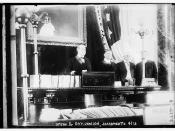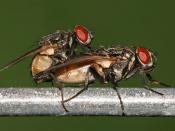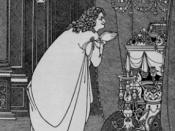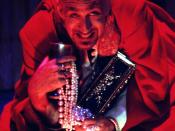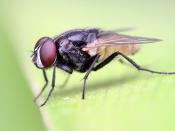The theatricality of Volpone by Ben Johnson is found in the nature of its characters. The tale of knavery woven by Johnson creates an environment that reveals this theatricality. The resolution to the play, a scene of judgment, verifies that the work is strictly theatrical. This final scene also defends against anti-theatrical views that undermine the genius of the work.
Simply put, Volpone is the story of a wealthy man who fakes a mortal illness for his own entertainment. Without any heir to his fortune, Volpone is courted by a group of his peers who hope to inherit his wealth. Aided by his servant, Mosca, Volpone is able to coerce these men into endowing him with expensive gifts. The development of this plot involves a great deal of trickery and scheming. With each character having something different to gain, the unfolding of events reveals very distinct character traits that give the work its theatrical significance.
A statement made by Sir Politic, Act II scene II, in reference to the mountebank (Volpone) presents the reader with a bit of valuable advice that should be kept in mind while reading or viewing the play. Politic says: "Sir, calumnies are answered best with silence: Yourself shall judge. Who is it mounts, my friends?"(48). This statement comes at a time in the play where the knavery is just about to escalate. Johnson, is reminding the audience to keep in mind the events on stage are merely that. All the malicious acts that transpire on the stage should be viewed as theater and judged accordingly. By including this statement, Johnson conveys the value and validity of his work come only as a theatrical piece. This is key in defending against any anti-theatric views, considering the primal ways in which Johnson presents his characters.
The character names in the play, literally translated, are names of animals. Volpone plays the role of the fox. He has concocted a plan that requires the deception of his peers so that he can gain personally. He is the mastermind behind all the mischeivious acts that take place. Mosca, the housefly, aids Volpone by performing various tasks. He is present in almost every portion of the play zipping around from scene to scene. Voltore, Corbaccio, and Corvino, are all birds of prey. Their names are symbolic of their role in the play. They are all waiting to feed on Volpone's wealth after his death.
As mentioned above, Volpone fakes an illness so that he may profit. Like a true fox, however, he does not stop his scheme there. He contrives a second plan. Volpone takes on the role of a mountebank, a sort of traveling salesman who peddles phony medicines for various maladies. This second scheme allows Volpone, by claiming the ointment has helped is sickness, to prolong the period of courtship by his neighbors. In doing so he manages to gain Celia, the wife of Corvino. The fox seemingly outwits his fellow creatures again.
Mosca, as the fly, is Volpone's implement for accomplishing his goals. The fox cannot be seen, or his plans would be ruined, so Mosca does the pricking. He is responsible for juggling all of Volpone's suitors and making sure all the plans go accordingly. This role requires Mosca to carry messages back and forth between many parties. Mosca's physical movement and his close physical and personal contact with the rest of the characters justify his name.
Corbaccio, Corvino, and Voltore, are Volpone's suitors. They all exemplify the same primal quality. Their nature reveals itself through the constant worrying over which man will become heir. Each man becomes so enthralled with Volpones money, that they forget things of much greater importance. Corvion agrees to give his wife to Volpone to be used as a prostitute.
